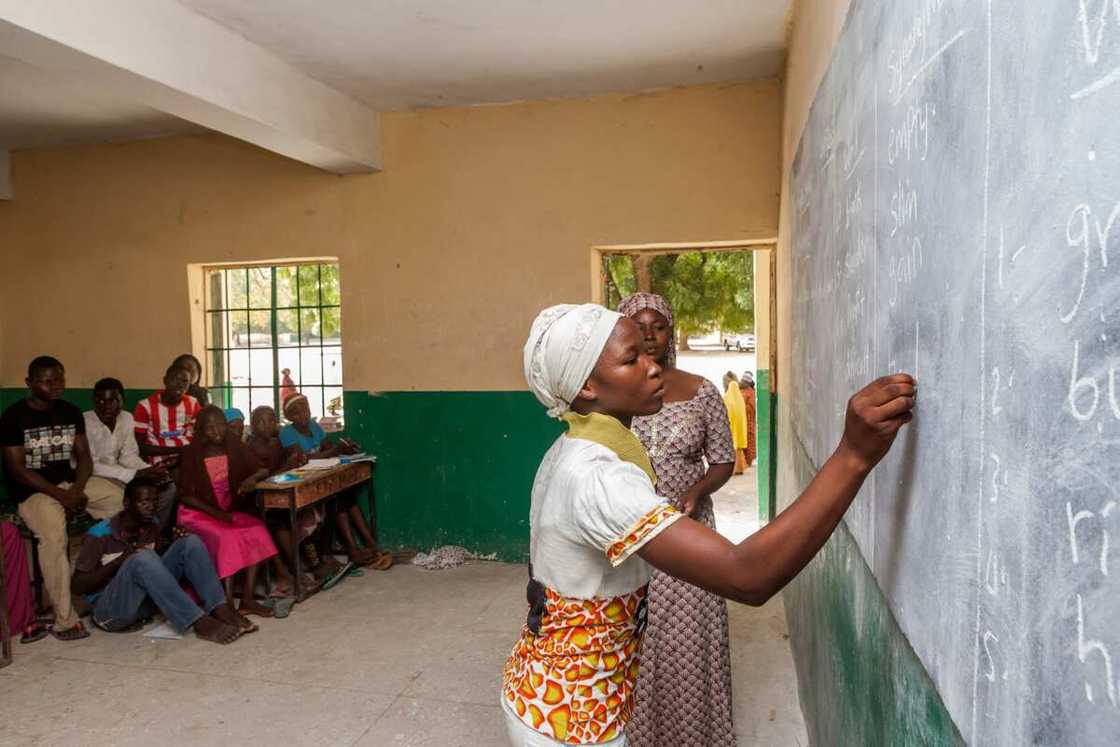By Isaac Atunlute
Amid deepening poverty and high rates of adult illiteracy, a grassroots education movement is sweeping across Nigeria. In Gbatse, a rural community in Ushongo local government area of Benue State, a mass education campaign is taking root.
The free literacy programme, which is a joint initiative of an NGO and a faith-based outfit, now serves over 183 adult learners. It offers structured learning from primary to the junior secondary level, with plans to expand further.
A local solution to a national challenge
Illiteracy remains a persistent barrier in many Nigerian communities, limiting access to opportunities and trapping families in cycles of poverty.
In Gbatse, where formal adult education facilities were nonexistent, this initiative emerged as a timely intervention—driven by local need and sustained by community ownership.
The impact is already visible. Some of the students have successfully transitioned into full formal secondary school, including candidates who recently sat for the Junior WAEC examinations.
Gbatse’s initiative mirrors a broader nationwide shift towards community-led education solutions. In Kano, for instance, the Street2School programme enrols out-of-school children into non-formal schools.
In Lagos, Slum2School Africa aims at achieving education equity through the delivery of low-cost e-learning centres in underserved areas. What these programmes share—along with the Gbatse initiative—is local ownership, cost-effective infrastructure, and inclusive context-driven design.
Together, they challenge the notion that progress requires massive state interventions or advanced technology.
Scaling what works
If supported through teacher training, learning materials and eventual integration into the state’s education system, Gbatse’s model could serve as a replicable blueprint for reducing adult illiteracy in other underserved regions
Beyond literacy, the programme fosters confidence, political awareness, and economic participation—helping residents take charge of their future.
The success of the initiative highlights a fundamental truth, education remains one of the most cost-effective tools for human and community development and in communities like Gbatse, that tool is finally within reach.
A grassroots education movement is transforming Nigeria's rural communities, specifically in Gbatse, Benue State, by addressing high poverty levels and adult illiteracy. The initiative, a collaborative effort between an NGO and a faith-based group, offers a free literacy programme for over 183 adult learners, progressing from primary to junior secondary education, with plans for expansion. This community-led approach provides critical education where formal facilities were lacking, empowering students, some of whom have moved to formal secondary schools and taken important exams.
This model of local education solutions is mirrored across Nigeria, such as Kano's Street2School programme and Lagos's Slum2School Africa, which provide educational access through non-traditional means. These initiatives emphasize local ownership, cost-effectiveness, and context-driven solutions, challenging the need for large state interventions. Gbatse's programme exemplifies a replicable method for tackling adult illiteracy, fostering broader community development through education, increased confidence, political awareness, and economic involvement. The initiative's success underscores education as a pivotal tool for human and community advancement, now within reach of underserved populations.






